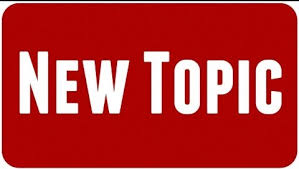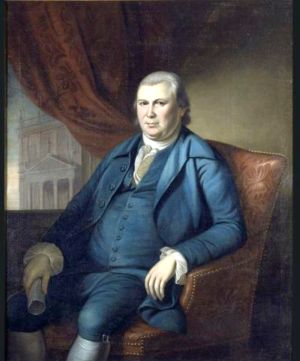Related Topics
Philadelphia Politics
Originally, politics had to do with the Proprietors, then the immigrants, then the King of England, then the establishment of the nation. Philadelphia first perfected the big-city political machine, which centers on bulk payments from utilities to the boss politician rather than small graft payments to individual office holders. More efficient that way.
Government Organization
Government Organization
Shaping the Constitution in Philadelphia
After Independence, the weakness of the Federal government dismayed a band of ardent patriots, so under Washington's leadership a stronger Constitution was written. Almost immediately, comrades discovered they had wanted the same thing for different reasons, so during the formative period they struggled to reshape future directions . Moving the Capitol from Philadelphia to the Potomac proved curiously central to all this.
Philadelphia Legal
Legal Philadelphia is full of crooks, but some lawyers are saints.
...Authorship of the Constitution
There were seventy invited delegates to the Constitutional Convention. Fifty-five attended the sessions, and thirty-nine signed it. We believe the main contributions were made by seven or eight men. But you can never tell, for certain.
Right Angle Club 2011
As long as there is anything to say about Philadelphia, the Right Angle Club will search it out, and say it.
Robert Morris: Think Big
Robert Morris wasn't born rich, or especially poor, but he was probably illegitimate. He had no recollection of his mother; his father, a tobacco trader in England, emigrated to Maryland and died rather young. It didn't take long for young Robert to become one of the richest men in America.
Lumpers, Splitters and Technicians: The Framers of the American Constitution
 Half a dozen distinguished colonists came to believe the thirteen American colonies could not survive unless they banded together. Eight years of bitter experiences during the Revolutionary War had taught them they must unite. We might call them lumpers.
Half a dozen distinguished colonists came to believe the thirteen American colonies could not survive unless they banded together. Eight years of bitter experiences during the Revolutionary War had taught them they must unite. We might call them lumpers.
Robert Morris: Businessman Father of the Bureaucracy

|
| Robert Morris |
UNDER the Articles of Confederation, America had a President who presided, but there was no executive branch for him to do anything administrative. The day to day business of the nation was conducted by committees of Congress, who mainly contracted out the actual work. Evidently, Robert Morris, the businessman had observed this system with displeasure, because it only took him a few days to replace it with departmental employees, reporting to him. The affairs of the nation were evidently in such disarray that there is scarcely any recorded resistance to this astonishing re-arrangement, probably viewed as only one of a series of brisk actions by this foremost businessman of the nation, acting in an emergency and to some extent using his own money. Furthermore, the immediate administrative improvement was apparently so obvious to everyone that the system continued after Morris left office, and was absorbed into the 1787 Constitution without much-recorded debate. Without dissent, as we say, the bureaucracy had been created. As the press of business steadily increased the bureaucracy, from a handful of employees to many millions of them, the fourth branch of government was created without any Constitutional mission statement, not one single word. Following directions set by early America's preeminent no-nonsense businessman, control of the bureaucracy was placed within the Executive branch, in time largely located within the District of Columbia, and governed by rules made by the Civil Service Commission. Sometimes this fourth and largest branch of government skirts dangerously close to encouraging insubordination to their politically appointed superiors.
For some reason, the State Department is particularly suspected of such "Yes, Minister" behavior. Increasingly, government subcontractors are relied upon ("privatization"), as the growth of public sector workforces a return to the subcontractor approach of two centuries earlier; such subcontractors increasingly find the bureaucracy assumes the role of the second Board of Directors. And for the same reason as before: the work of the central government keeps increasing. At a state and local level, an uncomfortable amount of political funding can be traced to utilities and other corporations who have been awarded legal monopolies, uncomfortably like the mercantilism which our colonist ancestors had found so repugnant to deal with. In the 21st Century, we are finally approaching the point where we can foresee the number of people working for some level of government becoming greater than the number of voting citizens, and therefore able to control their income and the nature of their work. When the bureaucracy begins to exert political election power over its elected superiors, elected politicians are almost certain to rebel at what they will surely see as going a step too far. However, on the topic of salary and work environment, they are likely to become allies. Public discontent is already echoed in the growing political movement to limit or shrink the size of government; it would be well to examine and pilot test alternative options before this one gets us into trouble.
In retrospect, this was one of many features of creating the three branches of government where broader implications went unnoticed in 1787. The British government had three branches, King, Parliament, and Judiciary. To create a government consisting of a President, a Congress, and a Judiciary did not then seem like much of a departure. However, the Revolution deposed the King and made the people sovereign. When the real implications of that breezy slogan had to be translated into legislative language serious implications emerged, unexpected then, and now hard to change.
Originally published: Sunday, August 28, 2011; most-recently modified: Thursday, July 25, 2019